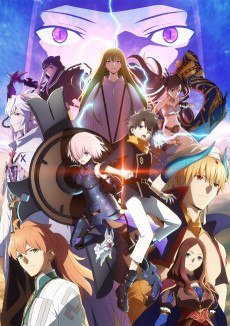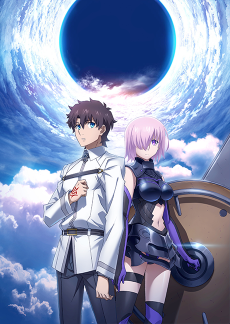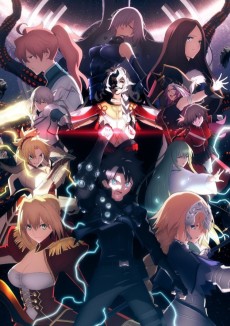FATE/EXTRA LAST ENCORE
STATUS
COMPLETE
EPISODES
13
RELEASE
July 29, 2018
LENGTH
24 min
DESCRIPTION
Waking up in a strange virtual world with no recollection of the past, Hakuno finds himself forced to fight for survival in a war he does not understand for a prize beyond value; the opportunity to have one's wish granted. With only an enigmatic "Servant" by his side, Hakuno Kishinami will have to face both friends and foes in battles to the death in order to not only gain possession of a mysterious object known as the "Holy Grail," but also to find the answer to the most important question of all: "Who am I?"
Notes:
- Includes episodes 11-13, Illustrias Geocentric Theory.
- The last episode aired with a runtime of 48 minutes as opposed to the standard 24.
CAST
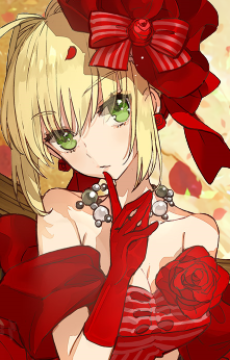
Nero Claudius
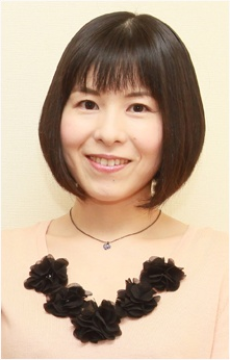
Sakura Tange
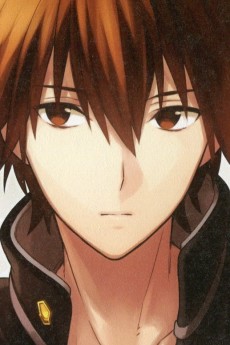
Hakuno Kishinami
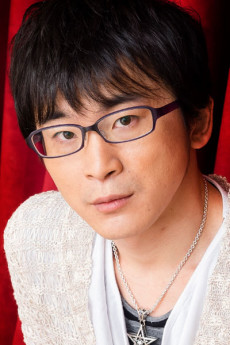
Atsushi Abe

Sakura Matou
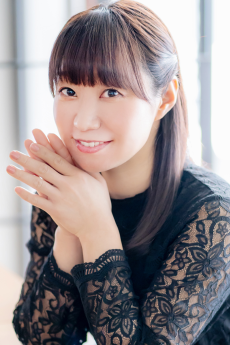
Noriko Shitaya

Rin Tohsaka

Kana Ueda
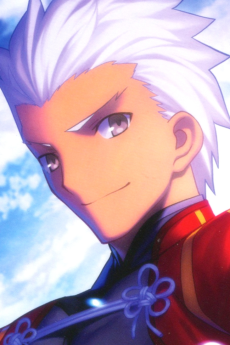
Archer
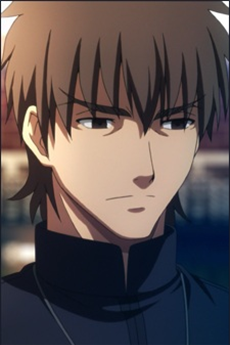
Kirei Kotomine
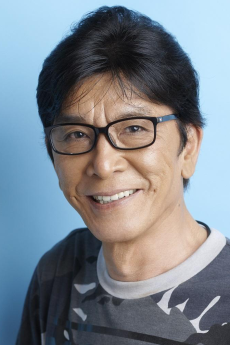
Jouji Nakata
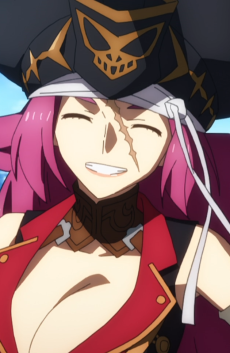
Francis Drake

Urara Takano
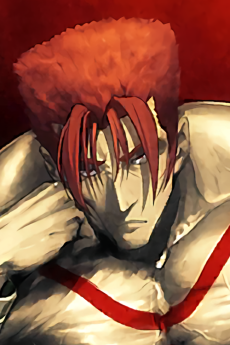
Leonidas I

Alice
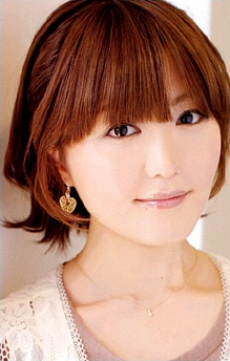
Ai Nonaka
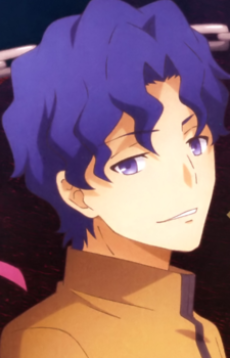
Shinji Matou
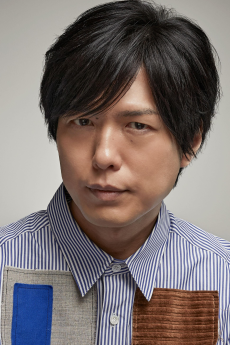
Hiroshi Kamiya
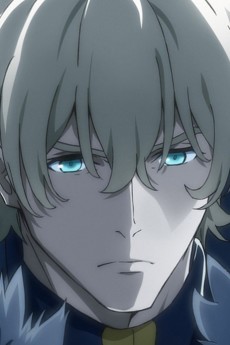
Gawain
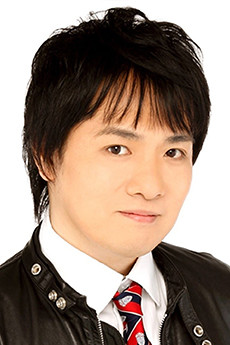
Daichuu Mizushima
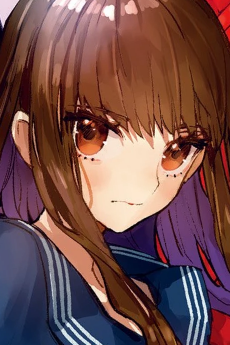
Hakuno Kishinami

Yui Ishikawa
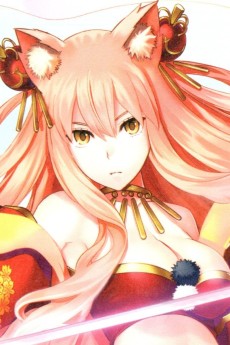
Suzuka Gozen
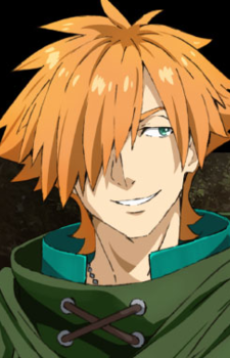
Robin Hood
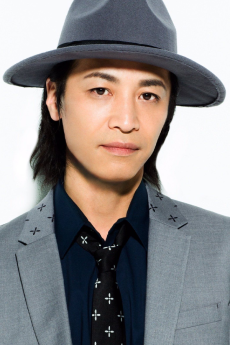
Kousuke Toriumi
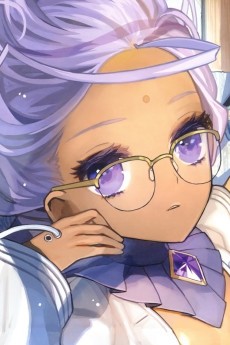
Rani VIII

Asami Sanada
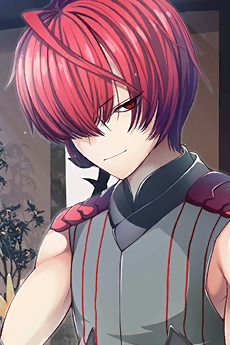
Kotarou Fuuma
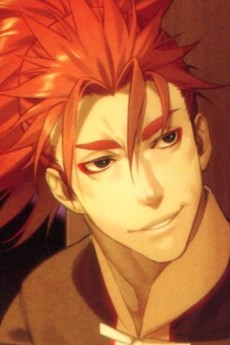
Li Shuwen

Kunihiko Yasui
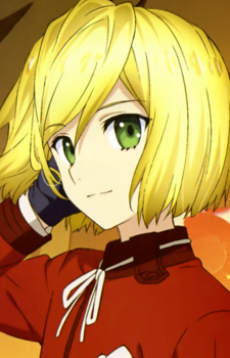
Leonardo Bistario Harwey
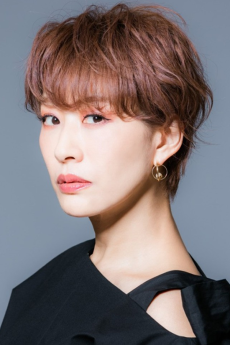
Romi Park
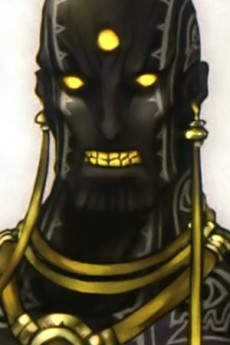
Darius III
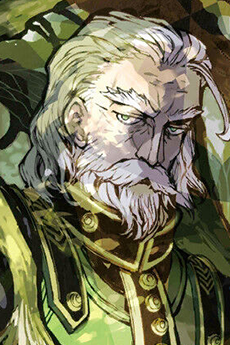
Dan Blackmore

Mugihito
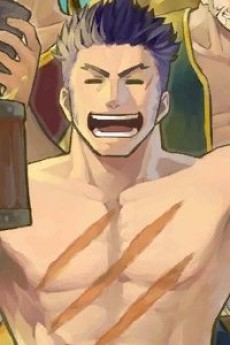
Fergus mac Roich
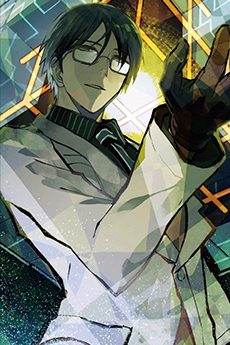
Twice Pieceman
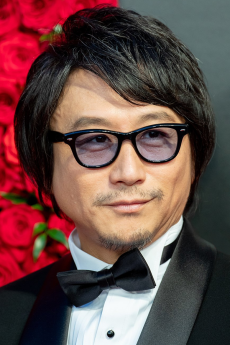
Hiroki Touchi
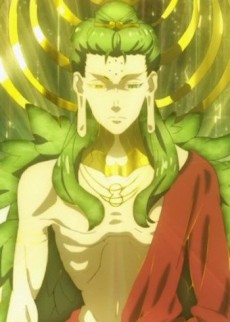
Buddha
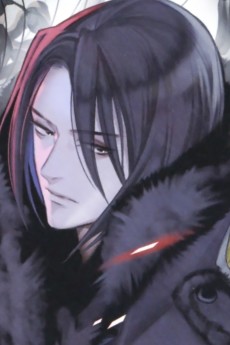
Julius Belkisk Harwey
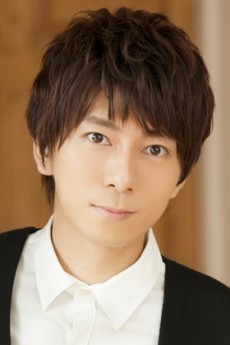
Wataru Hatano
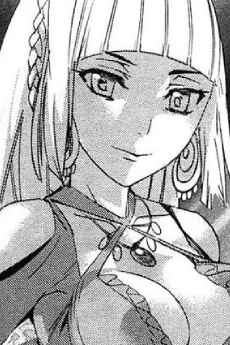
Agrippina
EPISODES
Dubbed
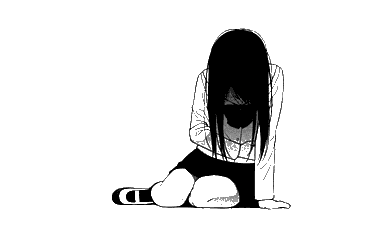
Not available on crunchyroll
RELATED TO FATE/EXTRA LAST ENCORE
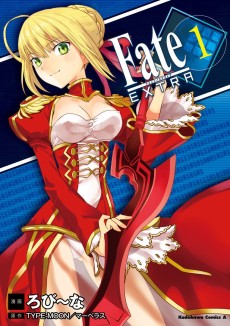 MANGA ActionFate/EXTRA
MANGA ActionFate/EXTRA MANGA ActionFate/Extra CCC Trial
MANGA ActionFate/Extra CCC Trial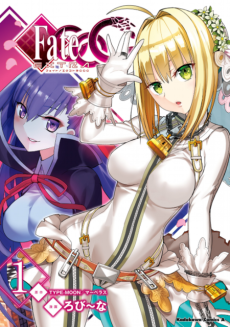 MANGA ActionFate/Extra CCC
MANGA ActionFate/Extra CCC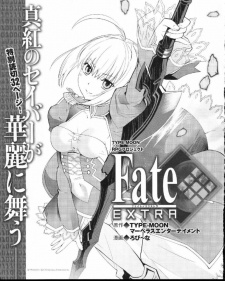 ONE SHOT ActionFate/Extra
ONE SHOT ActionFate/Extra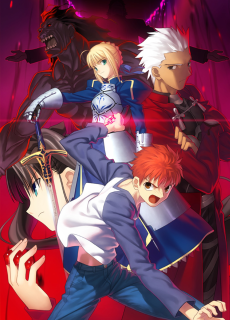 ANIME ActionFate/stay night
ANIME ActionFate/stay nightREVIEWS

CodeBlazeFate
60/100Fate/Extra: Last Encore is a fascinating title in the franchise, ruinous finale special notwithstanding.Continue on AniListThis review will be split into two parts: The main 10 episode series, and the 3-Part finale special, for quality reasons.
Main 10 episodes
Born directly from the father of Type Moon, Kinoko Nasu himself, Fate/Extra: Last Encore is a fascinating title in the franchise of Fate, and the Type Moon universe at large. Despite Nasu’s attempts to inform everyone about the intentions behind this anime and how everyone would be at an even playing field here, mass confusion broke out. It is only loosely based on the game, and due to the unique circumstances of the show’s narrative, it has been deemed unfit as a start. Perhaps this explains the disgustingly poor reception of this wonderful show.
Such a shame, since this anime is a sheer, flooring spectacle. It does not stop. It explains as it goes along, showing the sheer brutality of its style and depictions of events. Regrettably the blitzed pacing makes us ask questions in order to connect how characters figure things out or otherwise do something important in terms of progressing the narrative. Thankfully it is the only severe problem with the narrative, as all other questions you ask slowly get answered. The anime should let itself breathe more, as its crammed tightly with exposition that moves at a lightning pace, whether that be exposition about the setting or about a character. It clenches you by your wrists and never lets go, as it flies off into the hellish world it wants to show you as it unfolds before your very eyes! A disorienting start that gives you an oppressive, dreadful vibe, and never lets that vibe escape. It is ubiquitous throughout this precisely crafted, chaotic spectacle of a series. The series gradually pieces itself together like a puzzle. The information we learn shows is that this is no ordinary Fate anime; this technological nightmare of a system the character's life in is equal parts bewildering and horrifying. The more you learn, the more crushing everything feels, as the setting is nothing more than an automation of atrocity in which mankind has no hope beyond one last chance at survival. Nearly everything makes sense in broken context of this ravaged, now disorganized world of the frightening future, despite how brisk the pace is and how convoluted things can be regarding the floors and the vile, disturbing setting. The visions Hakuno has are largely an exception, excluding visions of the past. Sadly, that alone makes this a daunting choice, no matter where you are in terms of Fate expertise, and what makes or does not make sense will not only be difficult to explain, but will likely be lost on you regardless. The excessive flashbacks do not mitigate this issue either.
The scenery is a glorious feast for the eyes, and the directing conveys this omnipresent sense of dread masterfully. SHAFT and the main director, Akiyuki Shinbou, as well as an added director, Yukihiro Miyamoto, mastered their craft perfectly with the most brimming of creative architecture your ever-pleading eyes can consume. An interesting idea that helped sell the distorted and discomforting feel of the events and setting was how often times, certain parts of the images on screen would distort as if it were a static channel on a TV or a moment of poor connection. The fight in the opening alone is proof of their luscious visuals, even if the fights in the show itself are a bit more into the territory of clumsiness to an extent, depending on the fight. Said fights are certainly far superior to Apocrypha, however, as all of them have the lovely styles and kinetic movement to rival the 22nd episode of that series. The designs are wonderful as well; everything blends perfectly with the fascinating, layered, brisk, and intense nature of the show. It is every bit as beautiful as this show’s incarnations of Rin and Sakura, and Saber herself. The rose petals and all of the attacks look majestic and vibrant, almost as much as the aforementioned architecture. Locations like the school, and Wonderland, are distinct and mesmerizing for the eyes, with such beauty only being comparable to the uniqueness of it all. The only issue is the occasional tampering of brightness that has no purpose. Other than that, the visuals are beyond exemplary.
The music, while not able to be as much of a pleasure to the senses as the visuals, is still wonderful and interesting. The Opening, "Bright Burning Shout" by Takanori Nishikawa, is fantastic, perfect for a series of action, given how adrenaline-pumping it is. The Ending, "Tsuki to Hanataba (月と花束)" by Sayuri, functions in mucha similar way, with a more emotional tinge to it, though the vocals may prove bothersome to some. The background music works well for whatever scene it is in, blending in wonderfully with the mind-bending environments and the crystal clear mood of every scene. Each smaller setting within Last Encore has its own music, so aside from the opening and ending, if you hear a track in one primary location, it will almost never be played anywhere else. Think of it like video game level music, almost. None of these tracks are absurdly memorable but are ultimately nice accompaniment.
What is most raw of all is what it says. People are full of desperation. They cling to survival to the point where they forget what makes life meaningful in the first place, regardless of any conflict or glory or despair. People can lose a sense of purpose and identity, a sense of life. They can be swallowed up by hatred, by confusion, by pettiness and vanity. People must always have a drive to make their lives fulfilling, finding out the meaning in things and what purpose they wish their life to have. They cannot let fear or hatred hold them back, let alone consume them as they proceed to make pathetic and ruinous decisions. They must make their lives truly have value, even with the inevitability of death, as the dead leave a legacy of decisions and worth for the living to interpret. The protagonists and each master servant pair each convey this in their own fascinating ways, with standouts aside from the beautiful and boisterous Saber and the unnerving and interesting main protagonist with his nightmarish powers that haunt him most of all, including this show’s fascinating and visceral incarnation of Shinji Matou, and other masters. Each master has a strong desire, far more than the main protagonist, and it can be fascinating and even disturbing to know what they’re in for, particularly due to the magnificent presentation of each of these, courtesy of Shinbou whose directing is phenomenal. Other characters, such as Rin, are merely there for other narrative reasons, but are entertaining nonetheless. Saber, however, is the ultimate joy, and Hakunon is fascinating to see get pieced together, at least for now. It's up to the finale special to determine if this was worth it, and I feel the original message I found slipping away by the end here as is.
Fate/Extra Last Encore is arguably the most fascinating of the franchise's installments. It is a sheer spectacle in a completely different way to its brethren, and what it attempts to convey is far removed from what installments such as UBW and Zero wanted to tell, and what concepts works such as Apocrypha and Grand Order failed to properly explore. Does that make it the best? Not necessarily, but it is the most intriguing. It is the most terrifying and somber, next to Zero, the supposed holy grail of the franchise itself. Yes, UMU; it's such a fascinating work in so many respects deserves the respect it sorely lacks! Incomplete work or not, this work is a sight to behold. As I bid you adieu and await the continuation, I implore for this series to get the respect it truly deserves, as it is a passionate risk that pays off surprisingly well.
3-Part Finale Special
The crowds have stationed once again. The blazing curtains rose one more time. The long-awaited final act has arrived at last. Who could have guessed, once the pieces were finally put together, once everything clicked, that this play would be covered in rotten tomatoes?
These new and even returning adversaries are pure dirt in comparison to the more fascinating ones faced prior. The main lead himself proves to be a waste as well this time around. Even the production, which shined beautifully at first, slowly degraded as everything began coming apart at the seams as everything stops moving! The director of this performance no longer had anything interesting to present. Despite the answers to questions asked prior making sense and the puzzle of the world-building and scenario of the setting finally clicking without a hitch, nothing that happened along the way made any sense! Beyond the final minutes that leave a satisfying conclusion, reveals and outcomes were as underwhelming as the elements pulled out of nowhere here were absurd. The final 48-minute stretch is especially guilty of this offense. Such a dreadfully dry and elongated final outing this turned out to be. How, despite having a perfectly reasonable path in sight, did they stumble so hard? It should have been easy to write this finale, but now the once terrifying and interesting scenario has become as ridiculous the Last Order and Apocrypha installments that had brought shame in yesteryear!
Not everything collapsed, however. Despite the props showing their unfinished nature at times towards the very end, the production is as, if not even more stellar than before, with beautiful movements between the spectacles of this act's early half that surpass the previous installment. Even in the disaster of a finale this act had, the visuals still burned beautifully (along with the script). The new music choices were as complementary and well-done as ever. Nero herself was as delightful as ever. Still, this already bewildering play has finally burnt to ashes, much to my despair.

4digitmen
90/100An anime reviewed by frauds, wronged and misunderstood by both its marketing and its watchers.Continue on AniListThis WILL have spoilers, but this show doesn't really have spoilers per se.
Let's start off by describing my experience with Fate and the Extraverse. This is also simple, and is as follows:- Notes: Masterpiece.
- Fate/stay night VN: Close to a masterpiece. Some writing choices make this at least a 9.5 for me.
- FGO: Don't play it.
- Fate/Extra: Doesn't suck, but isn't good. Its execution is flawed, but the ideas are definitely there. Story average, characters and worldbuilding good. Gameplay horrible.
Make a note here, because unlike every other watcher, I've actually played what's necessary to understand what's going on in this anime from just the first two episodes, if not understand the entire show.
Plot Simple and effective. The first episode is quite easy to follow. It's meant to throw us off into thinking this is a basic, normal Extra adaptation. There are multiple clues to stop us from thinking such, but for now, we'll ignore those. They aren't really important to understanding the plot but more like foreshadowing. It's a 1:1 mirror to the "tutorial" MC NPC in Fate/Extra that dies when you get rekt by the Automata while trying to leave the preliminary stratum.
The second episode is when the actual plot is shown to us. Straightforward. Hakunon, from the original Fate/Extra canon, failed. She lost to Twice Pieceman after rejecting his offer. Now Saver's Noble Phantasm, the Chakravartin, has killed/brought about the slow and inevitable demise of the Moon Cell, causing each strata to become a floor, and each hold a Floor Master. We now know this takes place at a "bad end" to the original Fate/Extra, so most should have stopped here because they wouldn't understand anything past this point. I honestly have no clue why people kept going, but Fate anime-onlies and seasonal watchers are crazy unpredictable people so its probably that.
This sequence of events, in itself, is enough to clue you in about a couple of things. Using our knowledge of Fate/Extra, you'd realize that in the first place if Hakunon reached Twice Pieceman, then every HGW participant should be dead. Because Twice Pieceman is the final participant/boss of the Extra HGW, so logically every other participant has already been eliminated. And from the first episode its obvious that they aren't. In fact, instead of different participants, these are the exact same people Hakunon should have killed. This is explained later, but you wouldn't even notice this without playing Extra.That's pretty much the plot. It's not that complicated, though it requires that knowledge from Extra. The main issue I have with this, is that in basically every review of this show, people state that yes, they've played it, but the plot is still a complete mystery to them. They have not played it. These concepts are explained by the game itself, and the fact that you NEED to know what happens in Extra is evident in the first scene of the first episode. IT IMMEDIATELY BEGINS WITH THE END OF EXTRA. Aside from this fact, the title itself is a dead giveaway. Here's the definition of Encore in English:
a repeated or additional performance of an item at the end of a concert, as called for by an audience.
A Last Encore would, evidently, mean that its the last performance. That would mean there was a performance before it. Because this is the last one, of course.
Let's try it with the French usage of the word. I don't really need a definition for this, but its basically just "again," in most circumstances. A Last Encore would then mean trying again for the last time. This would mean there was an initial attempt that failed. In the midst of Isekai sentences that describe the plot entirely, this title is refreshing and actually represents the show.In relation to criticism and analysis of the plot itself, it serves as a wagon for the characters to move on, and to develop Twice Pieceman as an antagonist because Extra just made him out to be big bad man for the most part. There really isn't much to tackle as the plot is hardly the main focus, as likewise in-game, so nothing outstanding. If I had to score it, it would probably be around a 6.5/10.
Characters The shining highlight and Nasu's strength. Let's go back to episode one. Remember Hakunon dying and then Hakuno showing up in the preliminary stratum? Yes, this is a different Hakuno. He isn't what he seems to be, because of the weird events of the first episode.
every HGW participant should be dead
Here we get to see Leo, Rin, and Shinji as returning characters... but as mentioned, they should be dead. Same with Hakuno, because Hakunon is also dead. And the exact same with every single Floor Master. This is very important. I'll be focusing mostly on Hakuno here because he's the MC and gets the most development but each Floor Master should not be shafted (I'm only doing so to attempt at conciseness). Each of them is changed, different, or better than their Extra counterparts. They each have their own unique quirks, their own unique Floor which complements their separate theme amazingly, improved by SHAFT animation, but we'll get to that part later.
HAKUNO Kishinami (Extra art because it's raw)
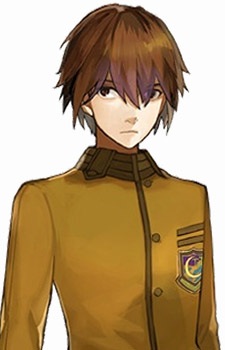
The themes of the MC are really striking as well-written, and logically follow a sense of development. It goes from "What it means to be alive," to "Why should we keep living if so?" and then lastly "Even if I may not be human myself, are they worth saving?" There is a thematic progression had here, and as he progresses each Floor, smoothly in such a way as not clearly describing it to the audience, but instead through the visual animation and the Floor Master. He's a unique character, and the Dead Face aspect just adds more to each of these themes. Is he really alive if he's just a bunch of hating souls? Why ascend, without a goal? Can he really save humanity if he serves to hate such?
His cleaner, less annoying relationship with Nero also ascends her character and their interactions for me. Nero serves as a sort of "mentor-ish" role to him, providing advice from her life as emperor and her experience in order to fuel his character growth. As this goes on, he starts warming up to her a lot more. He becomes more expressive toward her, instead of his constant deadpan delivery which is seen in the beginning.
Nero (Red Saber)

Is actually bearable. I know, I know. Impossible, right? But yes, they've done it. Unlike Extra, Nero serves a much bigger purpose in the overall narrative, mostly in helping Hakuno through his character struggles. Her dialogue is also much less annoying and preachy, putting the constant UmU aside (no Padoru posters). To the Nero haters, I'm a part of you, but just give her a chance here. Her fan-service is sometimes a bit... obnoxious. I wouldn't expect otherwise from any entry in the Extraverse as sex is a huge part for some reason (thanks CCC), so it just comes hand-in-hand. Oh yea, her backstory was an extremely nice touch. Her motivations became clearer, and it made her not feel like the complete caricature she was in Fate/Extra.
I wish I could spend more lines on each Floor Master, but it would take way too long and it's simply tiring. I would rather someone experience it themselves rather than describing how depressing Alice's Floor was, or just how much Leo had given up on his entire sense of self. For the score, I would give a 10/10 in this section.
Visuals/Sound Design It's SHAFT. They have a reputation.
Anyway, they're a vast improvement on whatever the fuck the copy-paste levels were in Extra. Each Floor is finely attuned to each Floor Master, bringing about visuals unlike I've ever seen from anime. They each represent a different part of the Floor Master, being a metaphor to such, unlike the original. Aside from the stunning backgrounds, THERE'S LIKE ZERO CGI. It's probably the happiest I've been watching modern-esque anime. And even more so then that, the amount of frames is fucking stunning. There were zero instances where I questioned the quality, in fact, this anime is basically what Apoc should have been. A consistently well-animated all across the board show, with each fight scene being as stunning as the last, instead of cramming all that effort in the last 5 episodes. It's very overblown, and over the top, just as a Fate anime should be. No ufotable CGI sparks here, or directionless Babylonia animation wank. 9/10.The sound design is... good for what it is. There are specific tracks that sound more orchestra-based that I enjoy much more and think they are perfect for their use, but a lot of the electronic-sounding ones are extremely bad. The sound mixing is average, there's no wubs or anything of the sort this time around. The music complements what's happening, nothing bad there. Slightly above average, but not enough to blow me away or anything. 6.5/10.
Direction/Pacing It's very well-paced, keeping me glued to the screen the entire time I was watching. There are no points with stand-still exposition, it usually has a moving element in typical SHAFT fashion, in order to keep the viewer somewhat entertained visually while they are explaining some concepts/need to know info (for example, in the second episode when Rin explains Wizards). The Floors each take about 2 episodes each. They start off with introductions of the Floor and development of the Floor Master in the first episode, and then in the second, they apply that to Hakuno, the current plot, situation seamlessly. It sounds formulaic on paper, but its execution is fantastic. This is one of my favorites aspects of the show, how you can feel its video-gamey-ness but it constantly reminds you that it's trying to go beyond it and is, in fact, a very well made anime, one attuned to its finest strings. 9/10.
One common criticism I hear is that the Tamano floor was done off-screen, but the thing is, it would have broken the currently existing pacing. It was unnecessary and would have not done anything for Hakuno, which is why it was mentioned in the optional Drama CD.The juicy shit So as you read this review, you may be wondering "How is this only a 6/10 average while this guy seems to be having the time of his life?"
A normal question, and for those who are familiar with the franchise, a predictable answer. Type-Moon has no clue how to market, or what the fuck they are doing.Marketing
The real bad stuff. The first mistake was implying in any way that this is an adaptation of the PSP game Fate/Extra in its marketing. It's clearly not, because if it was, this would not be so confusing to some. Viewers came into the anime thinking it was because of the marketing, and came out extremely confused. Because its really not an adaptation of Extra, but more of a complementary piece that uses pre-established elements/concepts to create a semi-similar but extremely different narrative. So yes, when watching this seasonally, people weren't happy, dropped it, reviewed it like shit, etc etc. I won't put this as entirely their fault, BUT I will blame them for continuing to watch after lore was thrown around that they didn't understand and was never explained in the show (because it was in the game)
The second mistake was... making an anime for an old PSP game, without giving any access to it currently, aside from the manga adaptation (which is subpar anyways). This way, Last Encore would be the only modern entryway into the Extraverse, as Extella is more of a spin-off that uses a separate timeline and separate lore. So even more people wouldn't be aware of how to properly experience it. Type-Moon is horrible at this, its a trend honestly.
The reviews, ratings, and mass-spread ignorance
In order to put fuel on the dumpster fire that was the marketing, the reviewers did not make it any better. This was indeed badly reviewed, but also in extremely bad faith. Fate haters took the opportunity to do their thing as expected, but that isn't really relevant. What was, were the fake fans, which we will call "fakers." Taken from the top-rated review on MAL:
Oh boy, Fate/Extra: Last Encore. I should say, right off the bat, that while I am a fan of the Fate universe... So I decided to give this a shot anyway. Why not? It has an alluring premise and takes place in an alternate timeline to Fate/stay night. In this timeline, mana have disappeared and Wizards are forced to use virtual space for magic. Similar to some of the other Fate series, a Holy Grail War is set up by a computer that pits 128 Masters in a tournament. The winner will be chosen with a wish to be granted by the Moon Cell Automaton, a mysterious computer of unimaginative powers. Main male protagonist Makuno Kishinami gets caught up into this battle for survival and is clueless on why he is involved. Luckily for him, he gets a servant called Saber. (do note for the sake of avoiding spoilers, I’ll just refer her as “Red Saber” from now on)
Has not played the video game. Gets the basic plot summary wrong...
If you’re hoping some of your favorite Fate character to show up in this series, then prepare for disappointment. Only a small handful of characters like Rin, Sakura, and Shinji appear and most of their roles are downplayed to get over the main cast. Some of the characters from Fate/Grand Order game also shows up although their roles are so small that you’ll likely forget them incredibly easily. Most of the minor characters have their roles minimized and episodes’ resolutions feel rushed.
Proceeds to think Fate/Extra is connected to Fate/stay night...
What bugs me though is how the main plot is executed with Hakuno and Red Saber as the main characters. Don’t me wrong. They are highly entertaining to watch at first but after a while, you may wonder if it’s worth investing time into them at all... But the series’ main story is not abominable. It’s actually much worse. For the majority of viewers, you’ll probably scratch your head on what the hell is going on. I know I did and feel like the series tries to do way too many things at once.
And inevitably, here are the consequences. Doesn't understand why this main character, why Red Saber, or why anything. Doesn't know why they should invest time in the characters. As stated above in my review, these are not the same people. So any player of the game would be extremely invested to find out WHY Hakuno is still alive after Hakunon died.
This and many other reviews keep providing uninformed opinions from an uneducated perspective of the franchise, by lying and saying they are "fans." This is a problem. You cannot criticize season 2 while at the same time saying you didn't watch season 1.Conclusion/How you can enjoy this properly You just have to read the premeditated material. As said before, Extra real sucks. So don't play it. Watch this silent playthrough instead. Put on that 1.5x/2x speed and enjoy yourself. If you feel like you can actually like the combat/the game's structure, then feel free to play it. I could barely find fun in it, but hey, you do you. The "WHAT YOU SHOULD KNOW BEFORE WATCHING LAST ENCORE" videos are really bad. Horrible job at explaining anything. The wiki entries are doable, but you'll have to dedicate a fair amount of your time in order to fully grasp everything. High recommend to the playthrough still.
As for Notes so you can understand what is happening with the outside world/what Overcount 1999 (briefly mentioned in the show) is, you can find the good translation on this Beast's Lair thread. I prefer the image version available for download, as it mimics the original and its setup with the dictionary, but the text version works too. It's also just a damn good read, so I recommend it regardless. It isn't even related to Fate in a sense, in story terms.
You also don't need to play FSN, but I recommend it. I put that there so people don't think I'm one of the mindless drones that sees Saber and has an immediate angry reaction.Don't play FGO.
9/10. My enjoyment is immeasurable and my day has been relit.
For those of you who've scrolled down and then disliked after seeing the score, you've done a great service in proving my point. Keep them coming.

magnifico
21/100Last Encore is denifitive proof you can't just jump into the Fate bandwagon.Continue on AniListThis review was written in late 2018. It contains Spoilers.
Fate/Extra is a massive mistake by studio Shaft. At the same time that the production is adventuring into strange waters by adapting a TYPE-MOON title, they`re diverting too much from their usual adaptations when they decide to go for a linear-focused narrative. Fate/Extra being adapted by this manner, in my opinion, is a recipe for disaster.
Fate/Extra Last Encore is a writing trainwreck, not even when the topic is the story in itself - the script is also a headless, footless monster. Shaft has again proven itself to prefer visual scripting rather than story-focused scripting. The show looks good. The visuals are well-constructed and the camera angles are nicely presented. Heck, even the animation is okay. Visual presentation is only the wrap of the present though, and when the present is trash, you know something's wrong.
In Fate/Extra, differently from other famous Shaft titles, there`s a linear narrative that has to be told by clear, objective and focused means. Fate's world is rich in important details that almost always need to be stated in a clear form for the universe to make sense. Shaft builds up a headless, footless monster when they decide to use the stylized approach that became famous in the non-linear "-monogatari" titles to be the vanguard of the series. This stylized approach, in Fate/Extra, becomes more important than the narrative itself. This becomes a serious problem for the linearity of the script because it leaves the spectator lost in the timeline and in the universe. Each episode starts and ends in a completely different manner than the previous – a basic continuity mistake that can wreck any show, anytime. I had to check the number of the episode while I watched to confirm I wasn't jumping over any of them by mistake.
The first episode of Fate/Extra is so badly-scripted that I thought I had been watching the second episode by mistake. It raises more questions than answers. Builds up an universe but doesn`t explains it. It completely ruins the suspension of disbelief. It's a completely horrendous episode debut.
What really irritates me when the topic is Shaft is the absurd quantity of unneeded, uninteresting, confusing and evasive dialogue. This is not only a problem of Fate/Extra itself, but of a lot of other Shaft-adapted titles: the characters say words, but they're not speaking anything. These types of pretentious dialogues make the characters look like college philosophers – they only serve as hole-fillers to extend the lifespan of the episodes. With its humble 13 episodes, Last Encore shoots its own foot when it adds these redundant dialogues. The script jumps over a whole floor because of the limited screentime – it`s a tragedy.
The story seemed to be reinventing itself every minute. There was always a coma, always a "but". When you think the main characters are going to get in trouble fighting Harwey, Hakuno pulls off the stupidest "rabbit in the top hat" to progress the plot further.
Character creation and development is horrendous in this show.
Fate/Extra is VERY objective when it only shows Saber/Nero in a 1-minute-25-second-action Opening. It tells us Nero is the marketing point, and she really is. Not only that, but Nero is the ONLY character with a backstory built-up that is concrete enough to be developed upon. The unforgivable mistake is, perhaps, the worst contradiction of the series – focusing the screentime on amorphous, monotonous, shapeless blobs that pretend to be characters - instead of in the actually interesting character that is Nero.
Just like other TYPE-MOON titles adapted to animation, the main character is once more an insertion mass for the spectator. Kishinami Hakuno is an extremely bad-built and bad-developed character, with the unique and essential function to react to the mishaps in the narrative while pretending to be you. Even after all this, he still fails to deliver while having, on average, two dialogues per episode and, on average, the most screentime of all characters. Hakuno`s backstory is badly-written, confusing and has many non-capped holes to be relevant. His personality has no taste and his motivations are empty.
Nero's relationship with Hakuno suffers so so much because Hakuno is a super confusing character. What were they thinking naming him the same as his girly counter-part? Whose idea was it to portray him as the memories of this girl we know and care nothing about? The show explains Hakuno's character a million times and it STILL makes no sense at all. And this absolutely ruins the 'climax' of this conclusion.
This doesn't get better if we compare Hakuno to the supporting characters. They are merely touched by the narrative, with no intention of development. Shinji, Rin, Rani – they're all characters with no development potential that are used solely as story-progression tools. They`re used, then get discarded. When the narrative freezes, there they are to unfreeze it. Then they get discarded again.
One of my problems with Fate/Extra is the monotony in the adaptation. The script is essentially descriptive. The series doesn't want to surprise you, or to make you feel with the characters, or even create a bond between you and the story. The only function of the narrative is to communicate the facts in the most tasteless, abrupt form possible. When only one of the characters is in the scene, it seems as like all the other characters are frozen in time, only to not ask anything about what happened when they were not in scene. This kind of wearisome approach was principally noticed in the final scenes of the series, when Hakuno makes the
hardchoice between Rin and Rani. A potential climax was being built only for the decision to be communicated in the most abrupt and monotone way. I was expecting nothing from the ending and STILL got disappointed.Fate/Extra is a title to avoid. It is not fun to watch, not relevant to the grand scheme of FATE, and a completely forgettable experience.
SIMILAR ANIMES YOU MAY LIKE
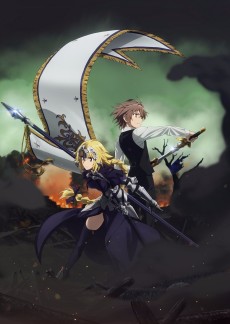 ANIME ActionFate/Apocrypha
ANIME ActionFate/Apocrypha ANIME ActionFate/stay night
ANIME ActionFate/stay night ANIME ActionSword Art Online
ANIME ActionSword Art Online ANIME ComedyBakemonogatari
ANIME ComedyBakemonogatari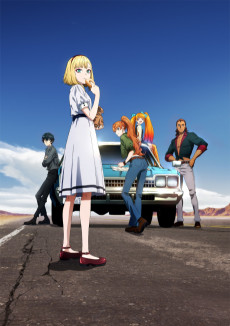 ANIME Actiontakt op.Destiny
ANIME Actiontakt op.Destiny ANIME ActionShangri-La Frontier
ANIME ActionShangri-La Frontier
SCORE
- (3.05/5)
TRAILER
MORE INFO
Ended inJuly 29, 2018
Main Studio Shaft
Trending Level 1
Favorited by 566 Users
Hashtag #FATEEX_LE

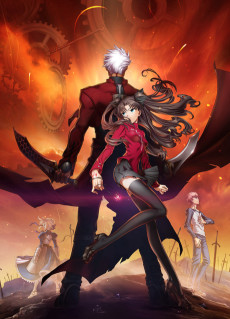
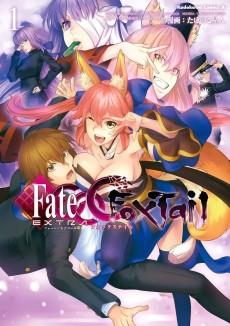

![Fate/stay night [Heaven's Feel] I. presage flower Cover Art for Fate/stay night [Heaven's Feel] I. presage flower](https://s4.anilist.co/file/anilistcdn/media/anime/cover/medium/bx20791-yPCX5GJuMH2k.png)
